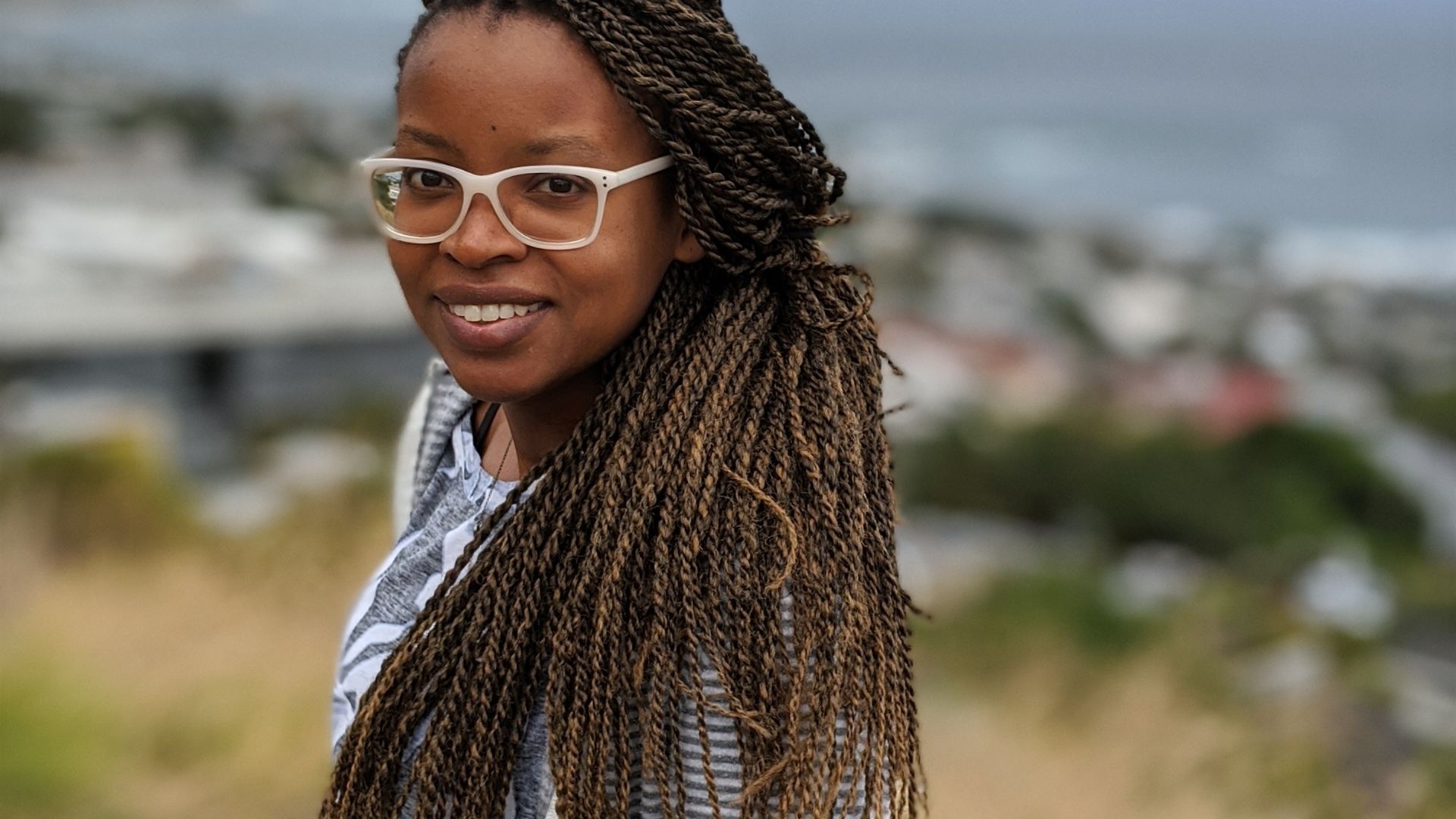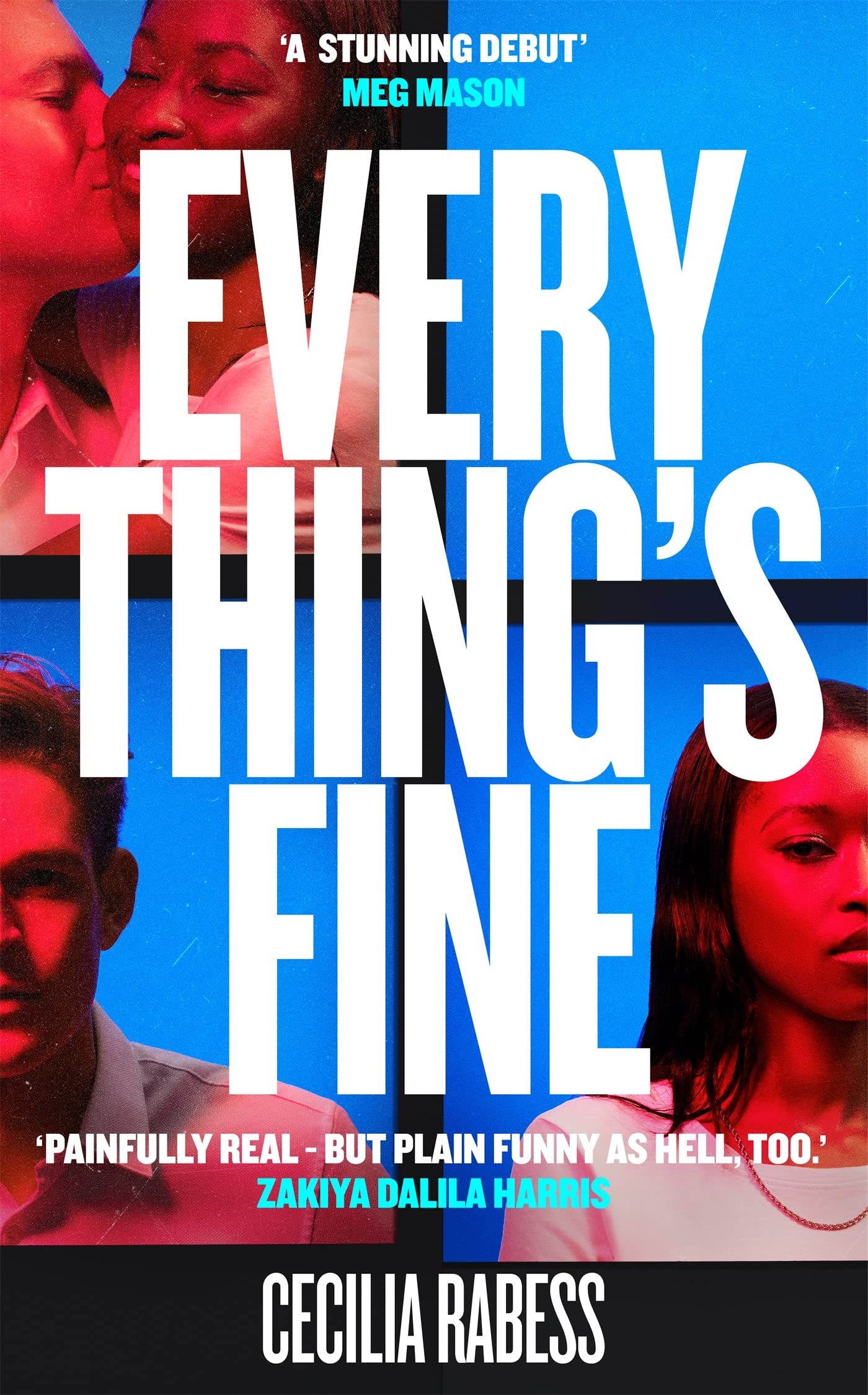You are viewing your 1 free article this month. Login to read more articles.
Cecilia Rabess in conversation about her debut Everything's Fine
Picador’s super-lead début for 2023 by Cecilia Rabess was the subject of a heated 11-publisher auction in the UK and other territories around the world.
"I’m black, you’re white. I’m liberal, you’re conservative…’ Said that way it almost sounds like poetry. Opposites attract. The best kind of love story. But that’s not quite right. Or at least it’s not what Jess means. They’re not really opposites. More like two people playing for different teams.” So muses Jess, the central character in Cecilia Rabess’ impressive and eagerly awaited début. Everything’s Fine was the subject of a heated 11-publisher auction in the UK and multiple other auctions around the world. It is Picador’s super-lead début novel for 2023, out in June.
The action in Everything’s Fine takes place over the years between two US presidential elections, in 2008 and 2016. On the tumultuous November night that Barack Obama is elected in 2008, first-year student Jess is stopped amid the celebrations in the quad of her Ivy League college and asked for a quote by a student reporter. Ecstatic, she composes herself enough to say: “I feel the weight of history tonight. To cast my very first vote for our nation’s very first black president is such an awesome privilege. A privilege that my ancestors, slaves, did not share. Standing on the shoulders of so much strength and sacrifice, I’ve never felt more humbled or hopeful.” Nearby, a “sandy haired freshman” in chinos is asked the same question, and grumbles that with the stock market in freefall and the price of gas, it’s not the time to “trust another tax and spend liberal with the economy”.
I’ve always been attracted to the idea that we can explain things… there’s a formula to tell us the answer
This is Jess’ first encounter with Josh, and she immediately thinks he’s an asshole, an opinion that is only reinforced when they meet again in a class about law and society. After graduation, Jess starts her first job at Goldman Sachs in New York City, and discovers Josh is an analyst on the same team who has been assigned to mentor her. As a white, conservative man—who seems unable to accept that life is easier for him because he is white—Josh is at ease in corporate America, whereas Jess, the only Black woman on the floor, isn’t even given a proper desk in the bullpen to start with, as she’s shunted in with the secretaries.
Over time, though still sparring and arguing, Jess and Josh manage a ceasefire, which turns into a tentative friendship which later, powered by a strong sexual attraction, turns into a relationship. But a straightforward love story this is not: Everything’s Fine asks thought-provoking and sometimes uncomfortable questions about race and class and politics. It’s about how messy and complicated relationships can be and how things can be negotiated up to a point, until they can’t and where do you draw the line? As the novel observes: “Love conquers all, except geography, and history, and contemporary sociopolitical reality.”
Rabess lives in San Francisco but is in London on a flying visit to meet booksellers and speak at the Picador showcase. We convene at her publisher’s offices in Farringdon.
Originally, she tells me, she wanted to write a love story which she envisaged would fall somewhere between “war-torn lovers where someone dies at the end” and “a bubblegum rom-com”. She was interested in telling a story “that felt real and nuanced and reflected our complicated reality”. The year was 2018, two years into Trump’s presidency, when a national reckoning was underway: “Especially on the Left, people who hadn’t voted for Trump were trying to understand and reconcile the country we thought we lived in, with the country it seemed like we [actually did live] in.”
With “all these questions kicking around about who we were as a country and where we were going”, Rabess then came across an article in New York Magazine with the headline “Donald Trump is Destroying My Marriage”, a series of short interviews with American couples with opposing political views, and the novel sparked into life. “It allowed me to marry the idea of this love story with these questions that I had around race and class and politics and identity.”
The words “everything’s fine” run like a refrain through the novel—words Jess uses to her father, who brought her up single-handedly in Nebraska after her mother’s death, far from any other Black families, when he calls her to find out how things are going. It’s also what she tells herself about her relationship with Josh, but in the polarising run-up to the 2016 election, is it still true?
I do want it to be a Rorschach test so that readers can take from it what they want or what they need
While Jess is instantly sympathetic as a character (she’s articulate, funny, fiercely bright), Josh is less so—to put it mildly—and Rabess had to work harder to humanise someone who, in her words, “has some pretty unfortunate takes”. She wanted readers to feel “conflicted in the same way Jess does; to want [the relationship], to not want it, and feel bad that you want it to work”.
Although she always loved books and reading, Rabess, who grew up on the East Coast between New York and New Jersey, chose to study maths at university. But she claims not to be “naturally good at math” and says brute force was involved while studying. “I’ve always been attracted to the idea that we can explain things… there’s a formula to tell us the answer. I don’t love ambiguity—which you might not guess from the book—I like things with clear answers.”
She was brilliant enough to land a job at Google as a data scientist and sees parallels between this role and being a novelist. “I think the beautiful thing, particularly about statistics—which is my area of expertise—is that it is quite poetic in a way. It can tell you things about the world that maybe you didn’t notice, or weren’t able to articulate, you can run a regression and you can predict the future…there’s a lot of storytelling with data.”
Rabess worked at Google for 10 years—“I got a plaque and everything”—but decided to quit in order to finish writing Everything’s Fine as she was struggling to find the time. Her co-workers were perturbed at the idea and talked her out of it—“[they said] ‘You’re going to be a starving artist and what about health insurance?’” Three days later she was taken on by an agent, followed by the aforementioned global scramble for rights and she is now a full-time writer.
Extract
At work Jess is staffed on different deals, but everything feels the same, as if she’s running backward on a treadmill.
She reads a list online, thirty-five life hacks to try now, and teaches herself how to separate egg yolks with an empty water bottle, and how to light a candle with a stick of dry spaghetti, and then she rolls all her electric cords into toilet paper tubes, but still feels like she is getting nowhere.
One day at work she googles “quarter life crisis” and then “lack of sleep induced psychosis”.
Over her shoulder Charles says, “A little inspiration for your suicide note?”
“That’s private,” Jess says, snapping her laptop shut.
“That’s property of Goldman Sachs,” he says. “Get back to work.”
Then, in her inbox is an email from Josh. The subject is JESS JOSH MONTHLY DINNER, and when she clicks on it there is no message, just a calendar invitation.
They haven’t spoken in more than a month.
Jess grins madly and clicks accept.
Rabess reckons that, for readers, her first novel will ask more questions than it answers: “I do want it to be a Rorschach test so that readers can take from it what they want or what they need. Or just see in it whatever they want to see reflected back, whatever perspective they see that’s interesting is the one that I want to offer them. I think it’s more like a conversation than an answer to any particular question.”











